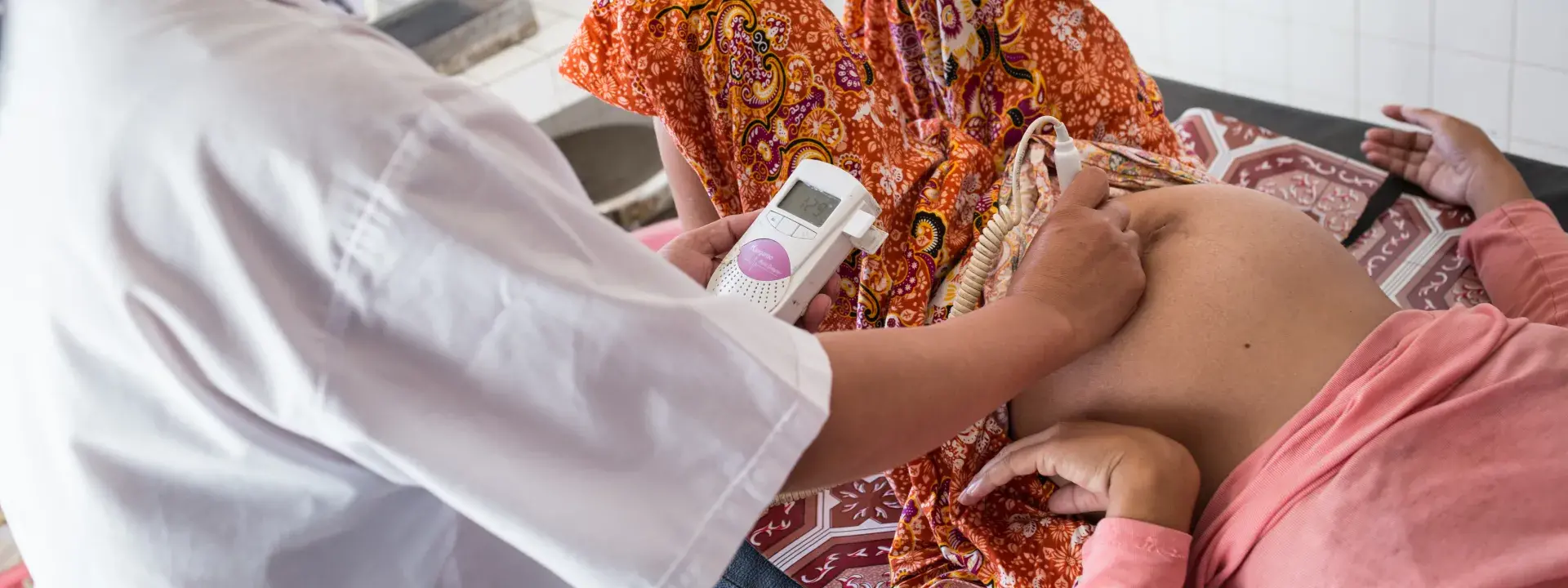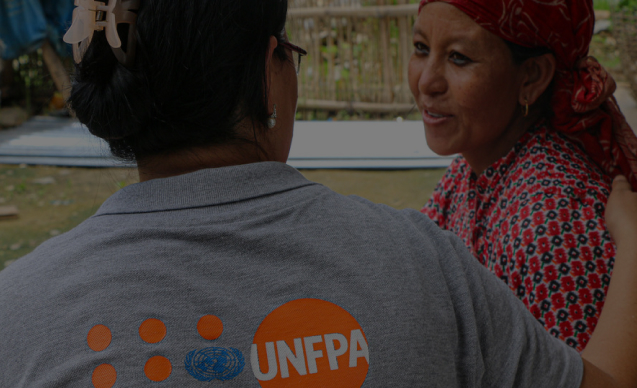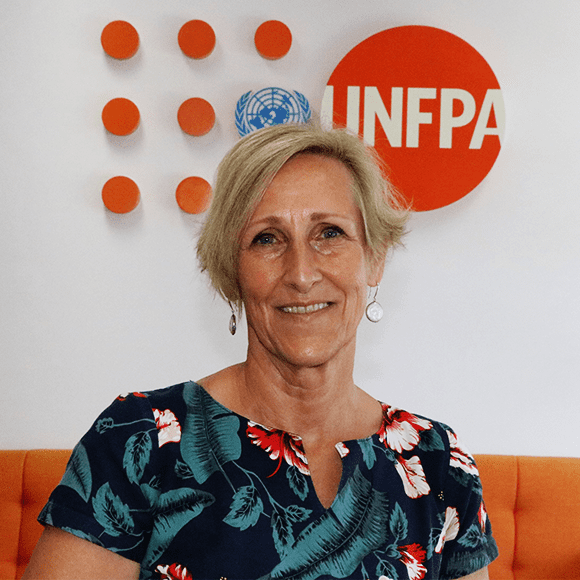About us
The United Nations Population Fund, UNFPA, is the lead UN agency for delivering a world where every pregnancy is wanted, every childbirth is safe, and every young person's potential is fulfilled.
UNFPA expands the possibilities for women and young people to lead healthy and productive lives.
Since UNFPA started working in Cambodia in 1993, the maternal mortality ratio has reduced by almost two-thirds; women are better able to plan when to have children – and how many; young people are more connected and empowered than ever before.
However, with more and more young people migrating from rural to urban areas within the country in search of better educational and economic opportunities, they are especially vulnerable to sexual and reproductive health risks and exploitation. Too few people have comprehensive knowledge on HIV/AIDS or where to access abortion services. Additionally, with population aging being an emerging issue in Cambodia over the next few decades, the demand for better and more affordable health resources will continue to increase.
Gender-based violence also remains widespread in Cambodia, not only leaving physical injuries, but creating stigma, discrimination and life-long trauma. In a country where the most commonly reported perpetrator of physical and sexual violence was a woman’s current husband/partner, how can women feel safe in their communities and contribute to affairs and the economic and social progress of their communities?
More needs to be done and national and subnational capacity need to be strengthened so that the right policies and right services are delivered in view of the rapidly changing demographics of modern Cambodia.
Ensuring every pregnancy is wanted
Few things have a greater impact on the life of a woman than the number and spacing of her children. Yet the latest Cambodia Demographic and Health Survey results show that approximately 12% of currently married women still have an unmet need for family planning.
Teenage pregnancy remains a major health concern in Cambodia. Rural girls are twice as likely to get pregnant and the children of young mothers are also at a significantly higher risk of dying. It is critical to have information and access to reliable, high quality and affordable family planning commodities and services, which is an integral part of sexual and reproductive health and rights.
Supporting maternal health
Only 9 countries achieved the Millennium Development Goal 5 target of reducing the maternal death ratio by at least 75% between 1990 and 2015 – and Cambodia was one of them! In just a decade, UNFPA Cambodia has helped to reduce the maternal mortality ratio by almost two-thirds, from 472 in 2005 to 170 per 100,000 live births in 2015.
However, more needs to be done. Perhaps the most challenging aspect of reducing maternal death and disability is finding ways to reach all women, even those in the poorest, most remote areas of Cambodia. This involves bolstering health systems: UNFPA Cambodia has been improving access to and the quality of emergency obstetric and neonatal care facilities, training medical personnel to provide skilled birth attendance at delivery, advocating for transparent and functioning formal payment systems and promoting awareness and the right for women to plan pregnancies and space their births.
Helping young people fulfill their potential
Youth: large numbers, huge challenges, infinite possibilities. Home to the largest generation of youth in its history, Cambodia is currently experiencing a demographic dividend with youth aged between 10 and 24 making up over one-third of Cambodia’s total population. This brings critical challenges but boundless opportunities for the country.
UNFPA Cambodia advocates for the rights of young people, including the right to accurate information and services related to sexuality and reproductive health, through mass media and the development of comprehensive sexuality education. Empowered with knowledge and skills to protect themselves and make informed decisions, they can realize their full potential and contribute to economic and social transformation. UNFPA Cambodia also chairs the UN Youth Task Force (UNYTF) meetings, a platform for UN interagency knowledge sharing and collaboration on youth activities, and coordinates the UN Youth Advisory Panel (UNYAP), the youth advisory body of the UN Country Team, in Cambodia.
Together with our partners, we strive to enhance the meaningful engagement of youth as essential players in decision-making processes at all levels and to empower these parents, teachers and leaders of the next generation to break the cycle of poverty, strengthen the social fabric and create a sustainable future.
How We Work
Country Office Structure
The UNFPA Cambodia Country Office is composed of 28 staff members, including a Representative, a Deputy Representative, an Assistant Representative, an Operations Manager, and 24 other programme and support staff.
Bridging the Gap in Cambodia: UNFPA Cambodia’s Country Programme
Grounding our work in human rights and gender equality principles, UNFPA Cambodia has been working closely with governmental and non-governmental organizations over the years to identify, recognize and address population, sexual and reproductive rights and gender equality issues.
In order to reach out to all people of Cambodia, our Country Programme is designed to be in line with local and global strategies as well as to address inequity and the needs of the most vulnerable. Four outcome areas are at the heart of UNFPA Cambodia’s Fifth Country Programme (2016-2017): Sexual and Reproductive Health, Adolescents and Youth, Gender Equality and Women’s Empowerment and Population Dynamics. The programme has a strong focus on youth, marginalized groups, adolescent fertility as well as data collection on population dynamics and sexual and reproductive health. We also work on the ground – priority will be given to locations that are performing poorly in comparison to the national average.
Working Together to Achieve Global Goals
UNFPA Cambodia is at the forefront of tackling the Sustainable Development Goals (SDGs), particularly Goal 3 on health, Goal 4 on education and Goal 5 on gender equality, which were adopted on 25 September 2015. Together with the Government, other stakeholders and partners, we will help to localize the SDGs to the Cambodian context to achieve the 2030 Agenda for Sustainable Development.




